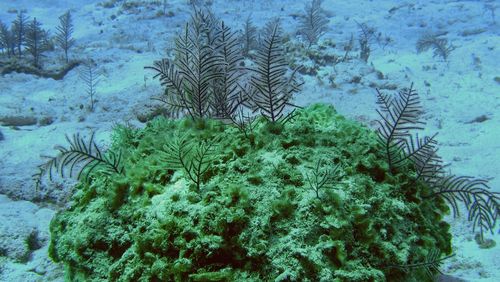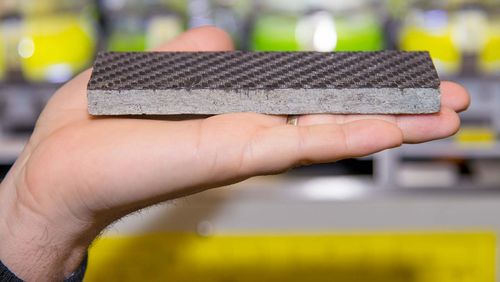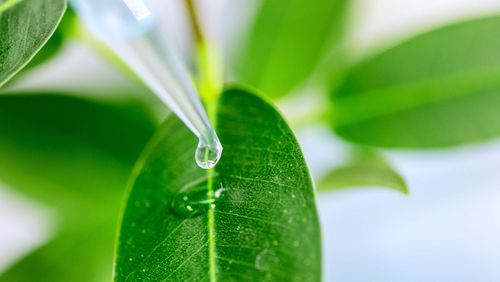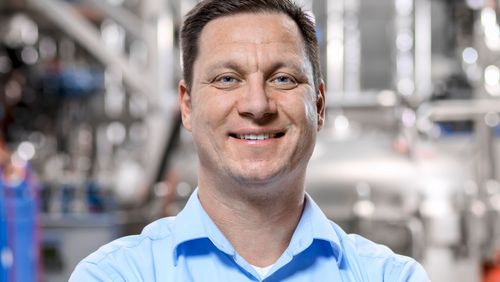
Bountiful microorganisms
The team at Synthetic Biotechnology are on the look-out for naturally arising organisms whose metabolic activities generate products with potential for human use: for instance, oleaginous (oil-producing) yeasts and algae. The researchers analyse and optimise these organisms in the lab, manipulating their metabolism and prompting them to produce materials that can be further processed into chemical building blocks. Industrial-scale production of these building blocks is the goal—and it’s hoped they will replace fossil fuels and other problematic resources such as palm oil.
The methodologies and processes at Synthetic Biotechnology are so complex that close collaboration between specialists from the fields of chemistry, biotechnology, bioinformatics, microbiology, genetics and pharmaceutics is indispensable. Currently, 25 such experts are working in the group at the Technical University of Munich (TUM). Headed by Thomas Brück, professor of industrial biocatalysis, the team at Synthetic Biotechnology is pressing forward in the new discipline—an undertaking partially funded by the Werner Siemens Foundation.
Why should so much energy be expended on creating products—for instance, oils—that occur naturally? To answer this question, it’s important to look at the larger picture. “The global population is expected to increase by 50% by the year 2050, and the demand for food and energy will rise accordingly,” says Thomas Brück, who holds the Werner Siemens Foundation Endowed Chair at TUM. “How are we going to meet this demand with existing resources and without dangerously exacerbating global warming?” Should the increased demand for food be met via additional fertilisation, increased amounts of nitric oxide would be released, further aggravating climate change. Should fossil fuels continue to supply the additional energy required—to heat homes, ensure mobility, produce goods—carbon dioxide emissions would spike dangerously. And should the demand for energy be increasingly met by biomass such as soy or sugar cane, these basic foodstuffs wouldn’t be available to feed the growing population. In short: a vicious circle.

Food competition
The team at Synthetic Biotechnology believes it can help to solve the conundrum. Thomas Brück’s team is seeking replacements for petroleum-based products such as kerosene and plastics. In addition, they are developing alternatives not only to the non-ecological manufacturing of products such as palm oil, but also to biofuels made of soya or other plants that would be more wisely reserved for feeding the world of tomorrow. The researchers also hope to produce a series of products that are currently limited in availability, for instance, the main agent in the cancer drug Taxol, which is produced semi-synthetically. In addition, they plan to produce functional fats for cosmetics (such as jojoba oil), and essential omega-3 fatty acids, which are an important ingredient in baby food.
The manufacturing of these products in the lab is carbon neutral and is designed to enable future generations to produce enough food and energy to maintain current living standards without triggering uncontrollable global warming.
The Werner Siemens Foundation is convinced by the team’s approach: since 2016, the Foundation has financed the new research and education facilities of Synthetic Biotechnology at the Technical University of Munich. Funding from the Foundation has also been used to update lab equipment and to found a research centre for schools, where students and their teachers can learn more about the still-young discipline of synthetic biotechnology.
Text: Brigitt Blöchlinger




